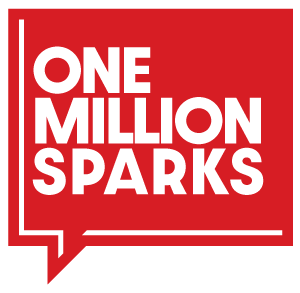Transcending technology, pedagogy and arts. What happens when we let the vision of a new sustainable world take the lead?
Editorial Note: Sascha Nick works for the cause, teaches for the cause, learns for the cause, and even lives for the cause. But what is the cause? You might ask. Well, in this case, the cause is the construction of a new world, of a new society built around the respect of nature’s resources and needs, organized through science, and interconnected by arts. To achieve so, his contribution is reflected in his work, as he is the founder of CO2-monitor, a project that helps corporations and organizations become more ecologically conscious, while he is also an academic professor and an activist. Seems too much for one person? Read about it and learn how it happened.
Source: CO2-monitor
Sascha Nick, founder of CO2-monitor
Q: Tell us about yourself.
A: I’m a physicist, economist, inventor, serial entrepreneur, B Leader, a passionate teacher, and lifelong learner. I generally know a lot only about things I’m curious about, especially how the natural world interacts with human society and its underlying narratives. And I love transmitting this curiosity to others.
Q: What is your vision for a more sustainable world?
A: A simpler, more inclusive society, focused on human relationships, science, and the arts, which would replace many aspects of today's one. Instead of focusing on the material aspects of human life, we would celebrate life in all its forms. Human life is the celebration of life itself, pretty simple and pretty powerful.
Q: What was your first step towards building a better world?
A: Learning a lot about myself, and keeping on learning as I share my results and engage with others. Later on came teaching as a professor. Like many things in life, CO2-monitor started by a lucky coincidence, a window of opportunity that opened up while building a CO2 calculator and an engagement platform for several clients, so such details cannot be planned at all and only make sense afterward. But the general direction of my work has been clear for years. I had worked in engineering on sustainability issues for a while, had created two other software start-ups before (CO2-monitor was #3, in the meantime, there’s also #4), and had two related software patents. Teaching came later, after two decades out of academia, again by coincidence, even if I had always enjoyed it and I was regularly invited as a guest speaker. But being responsible for every aspect of teaching and learning is very different, and I had a lot to learn myself.
Q: What challenges did you face?
A: Too much useless distraction at all levels.
Source: CO2-monitor
Q: How did you overcome your biggest challenge(s)?
A: Mostly not giving up, learning and reflecting more, sharing more, listening better, and continuously adjusting the focus.
Q: What is your biggest achievement so far?
A: When I realized I could make a real difference in my students' lives.
Q: What keeps you moving forward?
A: The big joy of understanding and the even bigger joy of sharing.
Q: What are the biggest lessons you have learnt?
A: Most people do not understand much and definitely do not care about facts, logic, and science.
Q: What’s next?
A: Expand my teaching including new formats, and developing testable prototypes for societal transition.



